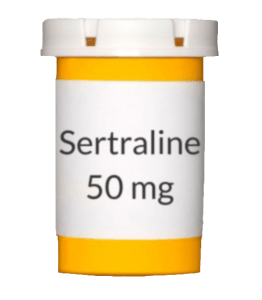Depression is a common and serious mental health condition that can significantly impact a person’s daily life. Moreover, depression can make it difficult to perform seemingly simple everyday tasks. While it may not be possible to completely eliminate the symptoms of depression, here are 5 coping mechanisms that may help to manage your mood and improve your quality of life.
Talking to a Trained Therapist
Also known as psychotherapy or counseling, talking to a therapist is an effective coping mechanism for depression. These professionals can help you to identify and understand the root causes of your depression, and provide you with tools and strategies to manage your symptoms.

on Unsplash
One of the most well-researched forms of psychotherapy for depression is cognitive-behavioral therapy (CBT). CBT is a form of treatment that focuses on identifying and changing negative thought patterns and behaviors that contribute to depression. It is based on the idea that thoughts, feelings, and behaviors are interconnected. Studies have shown that changing those negative thoughts and behaviors can lead to improvements in mood.
Another good source of help is your local church. Many churches across the country have trained counselors available for free. Even if you do not attend the church, seek them out as I am sure they would be more than willing to help.
Finally, it is important to remember that therapy can take time and commitment to be effective. Working closely with a therapist or counselor to find the right type of therapy that addresses your specific needs is crucial. Therapy may also be used in conjunction with other coping mechanisms.
Medication

Medication is one of the most common and effective ways to cope with depression. Antidepressant medications, such as selective serotonin reuptake inhibitors (SSRIs) and tricyclic antidepressants (TCAs), can help to balance the chemicals in the brain that are responsible for regulating mood. These chemicals, called neurotransmitters, play a key role in regulating mood. An imbalance of these chemicals can lead to symptoms of depression. Antidepressant medications work by increasing the levels of certain neurotransmitters, such as serotonin and norepinephrine, in the brain.
As with any medication, it is also important to note that antidepressants should always be taken under the direct guidance of a healthcare provider. Additionally, it is important to be forbearing and not stop the medication abruptly. Finally, medication alone may not be enough. A combination of different treatment methods may be more effective in managing the symptoms of depression.
Self-Care
Self-care is an essential aspect of coping with depression and is the practice of taking care of one’s physical and emotional well-being. It includes taking care of your body and mind by engaging in activities that promote overall health and well-being.
- Getting enough sleep. Sleep plays a crucial role in maintaining physical and mental health, and a lack of sleep can exacerbate symptoms of depression.
- Eating a healthy diet. Avoiding processed and sugary foods, alcohol, and caffeine can help to improve overall health and well-being.
- Taking time for yourself to engage in activities that bring you joy is also an important aspect of self-care. It could be something as simple as reading a book or listening to music. These activities help to distract from negative thoughts and feelings.
Additionally, remember that self-care is a continuous practice, and should be incorporated into daily life. It’s important to prioritize self-care, even when feeling overwhelmed, and to make it a regular part of your daily routine. It’s also important to be patient and remember that recovery is a process, and self-care practices that work for one person may not work for another. Finding the right method of self-care may take some experimentation.
Social Support
It’s important to reach out to friends and family for support and to seek out social activities that bring you joy. By connecting with others, having a strong support network can provide a sense of belonging and help you feel less isolated.
You should however try to avoid the use of Social Media sites such as Facebook, Instagram, and Twitter as your only source of social interaction. Face-to-face communication with real humans is the only way to avoid the feeling of isolation.
Digital Art
Digital art, such as drawing, painting, or photography, can also be a helpful coping mechanism for depression. Actually, engaging in any type of creative activity can help to express emotions and feelings which may otherwise be difficult to put into words. Finishing a piece of digital art, or anything of the like can provide a sense of accomplishment and self-worth. In addition, the act of creating art helps to distract your mind from negative thoughts and feelings.
One of the added benefits of digital art is that it allows for easy access and flexibility, as you don’t need a specific place or materials to create. If you have a tablet, like an iPad, and a finger, you can create digital art. And even if you say, “but I cannot draw”, that is fine too. Pick up the iPad, download one of the many free or expensive drawing apps, and just start drawing stick figures. Remember, this is your art piece and sharing with others is up to you.
Closing
In conclusion, depression is a serious mental health condition that can significantly impact a person’s daily life. However, there are several coping mechanisms that can help to alleviate symptoms and improve overall well-being. Medication, therapy, digital art, social support, and self-care can all be effective ways to cope with depression. It is important to work with a healthcare provider to develop an individualized plan that addresses your specific needs. Remember that recovery is possible and there is always hope.
;
If you made it this far, please consider commenting below, subscribing, and also sharing on your social media sites. Most importantly, I ask for your prayers. I write this weekly blog as an outlet in my fight against depression. However, my hope is that something I write here may help others who may be struggling. If you would like to help with my battle against depression, check out my online Etsy store. Most proceeds are donated to the American Foundation for Suicide Prevention.
If you or someone you know may be contemplating suicide, call the National Suicide Prevention Lifeline at 1-800-273-8255 or by dialing 988. You may also text HOME to 741741 to reach the Crisis Text Line. In emergencies, call 911, or seek care from a local hospital or mental health provider.
Scripture quotations marked HCSB are taken from the Holman Christian Standard Bible®, Used by Permission HCSB ©1999,2000,2002,2003,2009 Holman Bible Publishers. Holman Christian Standard Bible®, Holman CSB®, and HCSB® are federally registered trademarks of Holman Bible Publishers.
